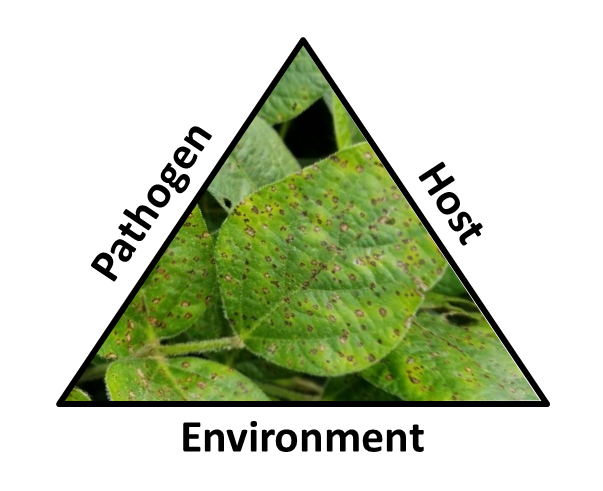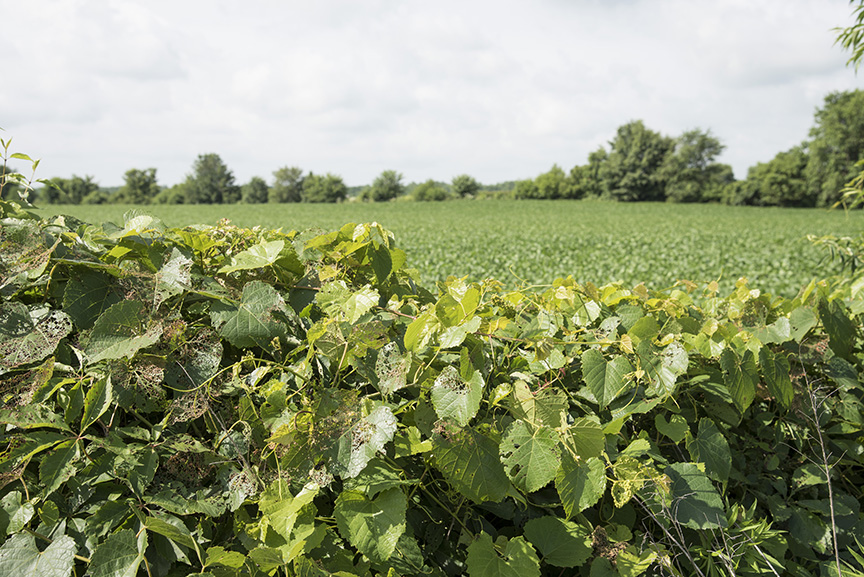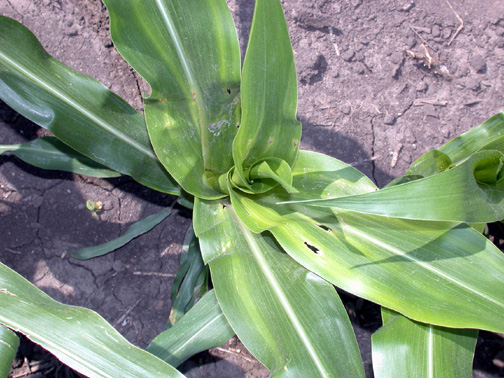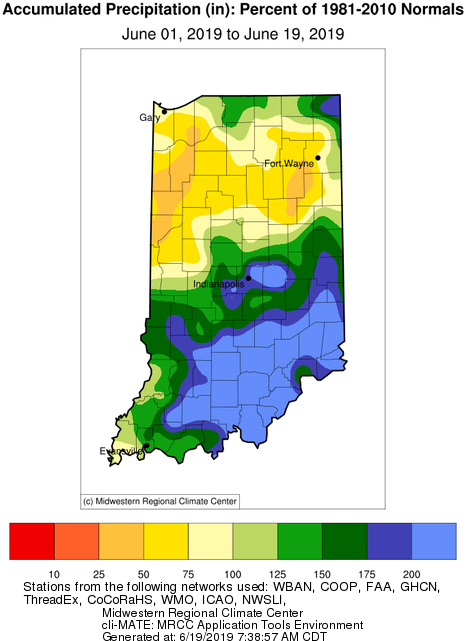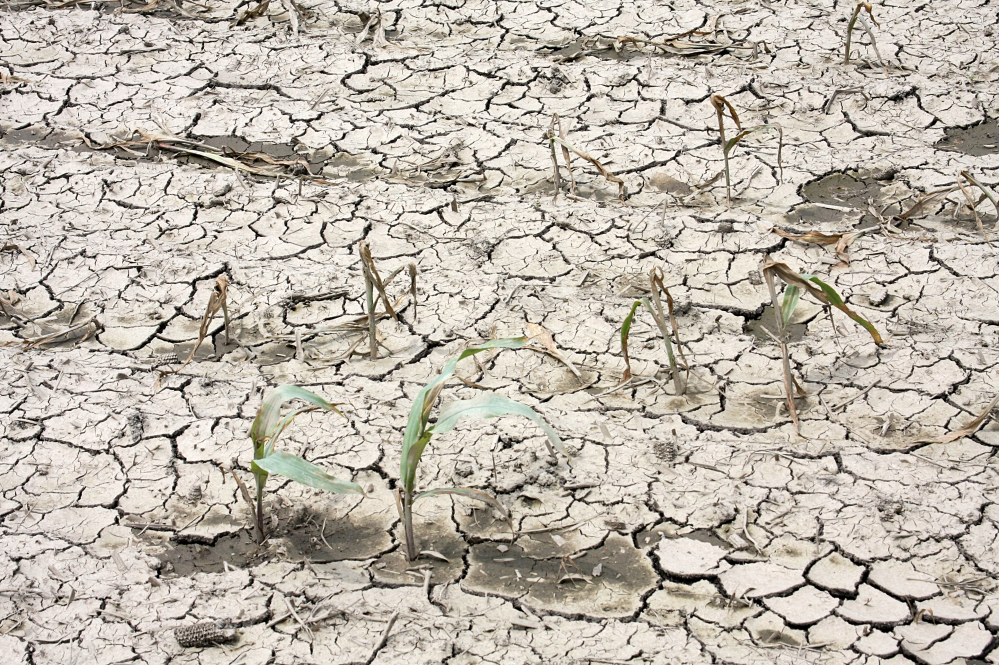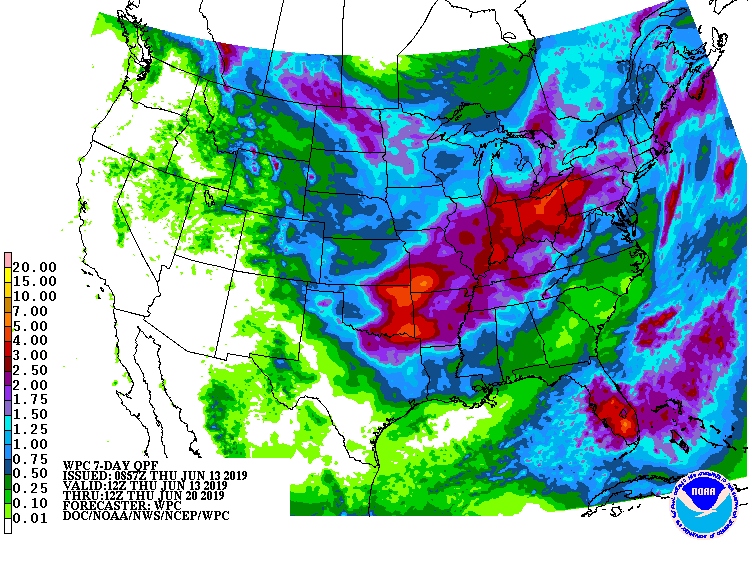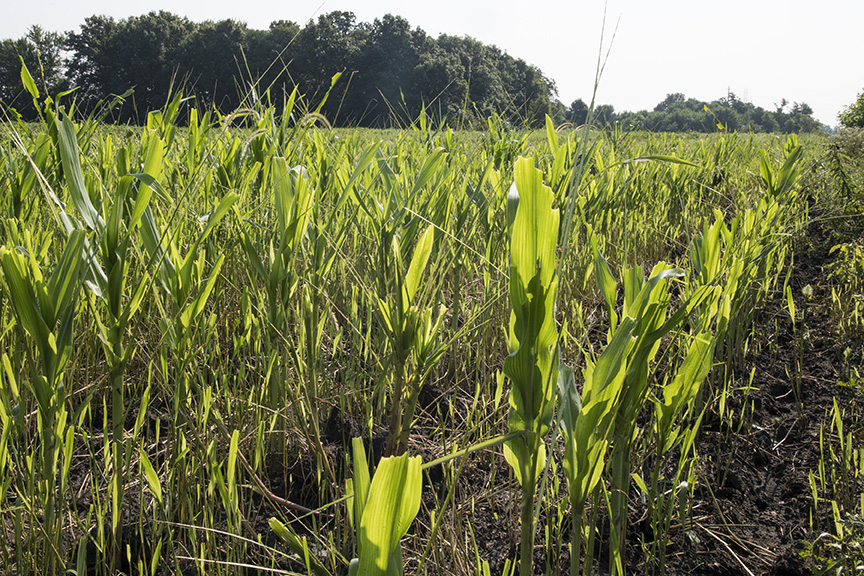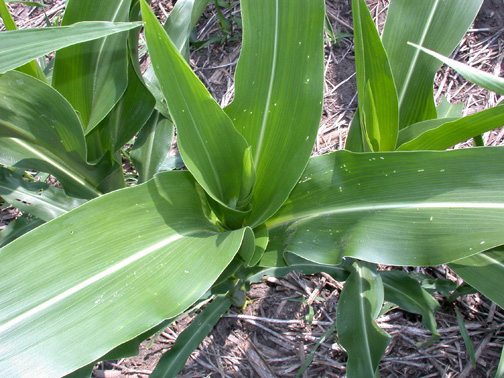After a welcomed break in the rain for most of the state over the last 7-10 days, that window will close again by this weekend. In fact, the 7-day precipitation forecast (Figure 1) is predicting 2”-4” across Indiana by next Thursday (June 20th). Beyond that date, the climate outlook is showing strong confidence that above-normal precipitation amounts will continue through the following week (June 25th) and into early July. Be prepared for pooling water and potential flash flooding! How unusual has this spring been for Indiana? Believe it or not, this past March-May came in as the 11th wettest spring (15.52”) with respect to the 1895 through 2019 (125 years) time period! The record spring was in 2011 when 19.58” fell across the state (Figure 2). What is interesting to consider is in 2011, after the record-breaking March-June precipitation, the rain all but stopped falling for July through October (Figure[Read More…]
